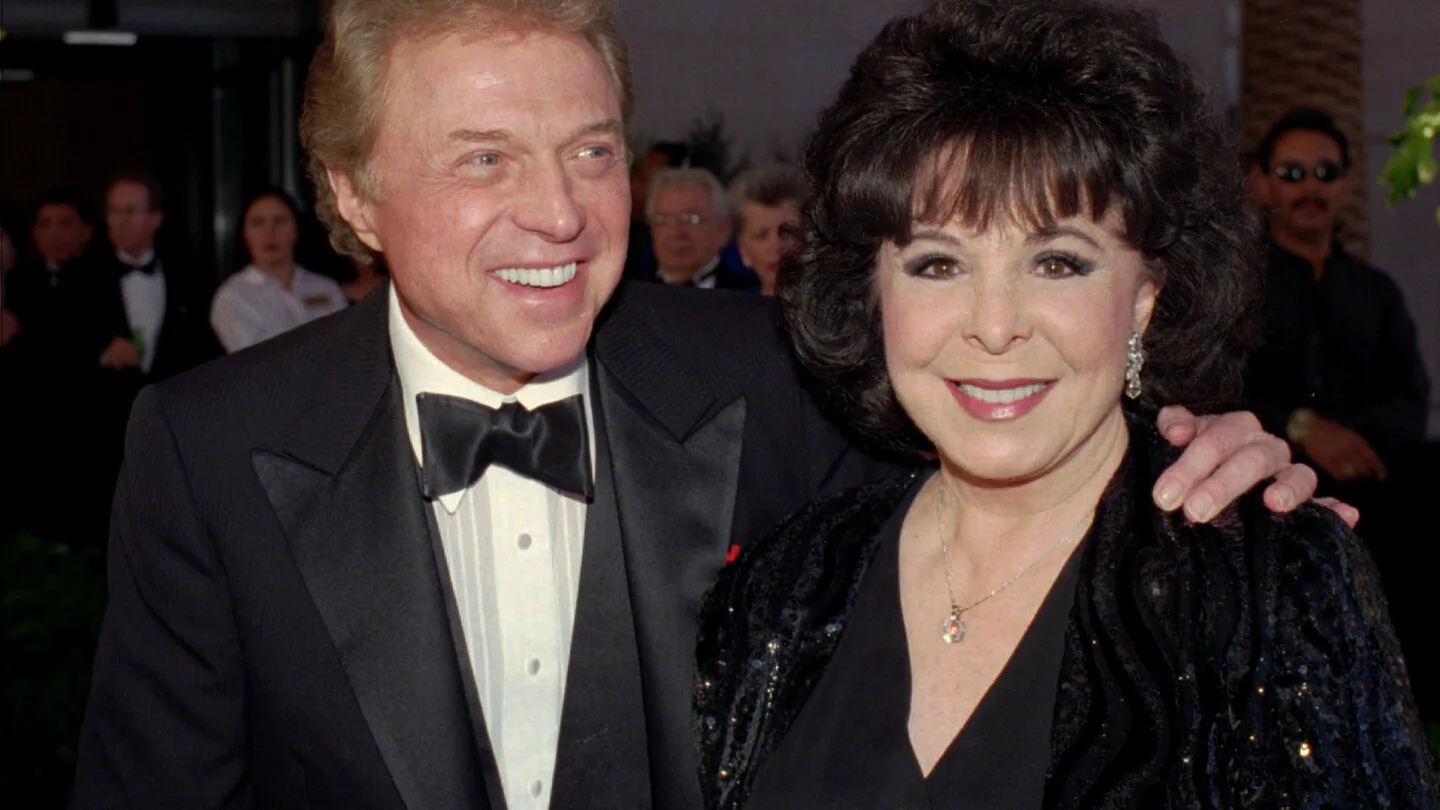NEW YORK — Steve Lawrence, a prominent singer and actor who, as a solo performer and in tandem with his wife Eydie Gorme, kept Tin Pan Alley alive in the rock era, died Thursday. He was 88 years old.
Lawrence, whose hits included “Go Away Little Girl,” died of complications from Alzheimer's disease, said Susan DuBow, a family spokeswoman.
Lawrence and Gorme – or Steve & Eydie – were known for their frequent appearances on talk shows, in nightclubs and on stages in Las Vegas. The duo drew inspiration from George Gershwin, Cole Porter, Jerome Kern and other songwriters.
Shortly after Elvis Presley and other rock music pioneers began to dominate radio and records, Lawrence and his wife were contacted about changing their style.
“We were lucky enough to get in on the ground floor of rock 'n' roll,” he recalled in a 1989 interview. “It was 1957 and everything was changing, but I wanted to be Sinatra, not Rick Nelson.
“Our audience knows we’re not going to go full heavy metal or set the drummer on fire – even though some nights we talked about it,” he joked.
Although Lawrence and Gorme are best known as a team, both also had huge solo hits within months of each other in the early 1960s.
Dionne Warwick, a longtime friend, said in a statement that Lawrence was “resting comfortably in the arms of our Heavenly Father. My deepest condolences.
Lawrence scored first in 1962 with the achingly romantic ballad “Go Away Little Girl,” written by the Brill Building songwriting team of Gerry Goffin and Carole King. Gorme matched his success the following year with “Blame It on the Bossa Nova,” a catchy tune about a dance craze of the era, written by Brill hitmakers Barry Mann and Cynthia Weil.
In the 1970s, Lawrence and his wife were a major attraction at Las Vegas casinos and nightclubs across the country. They also appeared regularly on television, doing specials and participating in various shows.
In the 1980s, when Vegas cut back on headline acts and nightclubs became scarce, the duo turned to auditoriums and attracted large audiences.
“People come with a general idea of what they're going to get with us,” Lawrence said in 1989. “It's like a product. They buy certain cereals and know what to expect from that package.
Lawrence launched his professional singing career at the age of 15. After two failed auditions for the television show “Arthur Godfrey's Talent Scouts,” he was accepted on the third try, winning the competition and the prize of appearing on Godfrey's popular daytime radio show for a week.
King Records, impressed by the teenager's strong voice, signed him to a contract. Her first record, “Poinciana,” sold more than 100,000 copies and her high school allowed her to skip class to promote it with out-of-town singing dates.
After several appearances on Steve Allen's TV show, Lawrence was hired as a regular. When the program became NBC's “Tonight” in 1954, he followed it, singing and exchanging jokes with Allen. The series set the template for the long-running “The Tonight Show.”
“I think Steve Allen was the most important thing that ever happened to me,” said Lawrence, who stayed with the show host for five years, honing his comedic skills and attracting a wide audience with his singing. “Every night I was called to do something different. In its own way, it was better than vaudeville.
Early in the series, a young singer named Eydie Gorme joined the cast. After singing together for four years, she and Lawrence married in 1957.
Until Gorme's death in 2013, they remained popular, whether working together in concert or making separate appearances on television.
His reasoning: “If we did TV together all the time, why would anyone go see us at a club? »
He has appeared in shows such as “CSI: Crime Scene Investigation,” “Gilmore Girls,” “Diagnosis Murder,” and “The Nanny.”
He and his wife starred together on “The Steve Lawrence-Eydie Gorme Show” in 1958, and Lawrence had his own series, “The Steve Lawrence Show,” in 1965.
He also made stage appearances without Gorme, including a starring role in a summer 1962 stock version of “Pal Joey”. He arrived on Broadway in 1964 – and earned a Tony Award nomination – in the musical “What Makes Sammy Run?” based on Budd Schulberg's classic novel about a New York hustler who works his way to the top of the entertainment world.
Critics praised Lawrence but gave the play poor reviews. The company nonetheless turned a profit, and insiders attributed its success to its performance.
Lawrence has also played a few character roles in films, including “Stand Up and Be Counted”, “Blues Brothers 2000”, “The Lonely Guy” and “The Yards”.
Lawrence and Gorme, born in New York, lived in a Manhattan apartment during their early years together. When the center of television entertainment shifted to Hollywood, they moved to Beverly Hills.
Born Sidney Liebowitz in the New York borough of Brooklyn, Lawrence was the son of a Jewish cantor who worked as a house painter. He began singing in his father's synagogue choir at age 8, before frequenting bars and clubs in his mid-teens. It takes its name from the first names of two nephews.
He and Gorme had two sons, David, a composer, and Michael. Long suffering from heart problems, Michael died of heart failure in 1986 at the age of 23.
“My father was an inspiration to so many people,” his son David said in a statement. “But to me, he was just this charming, handsome, hysterically funny guy who sang a lot. Sometimes alone and sometimes with his incredibly talented wife. I am so lucky to have had him as a father and so proud to be his son.
___
This report contains biographical material compiled by former AP reporter Bob Thomas.
___
Mark Kennedy is at http://twitter.com/KennedyTwits

